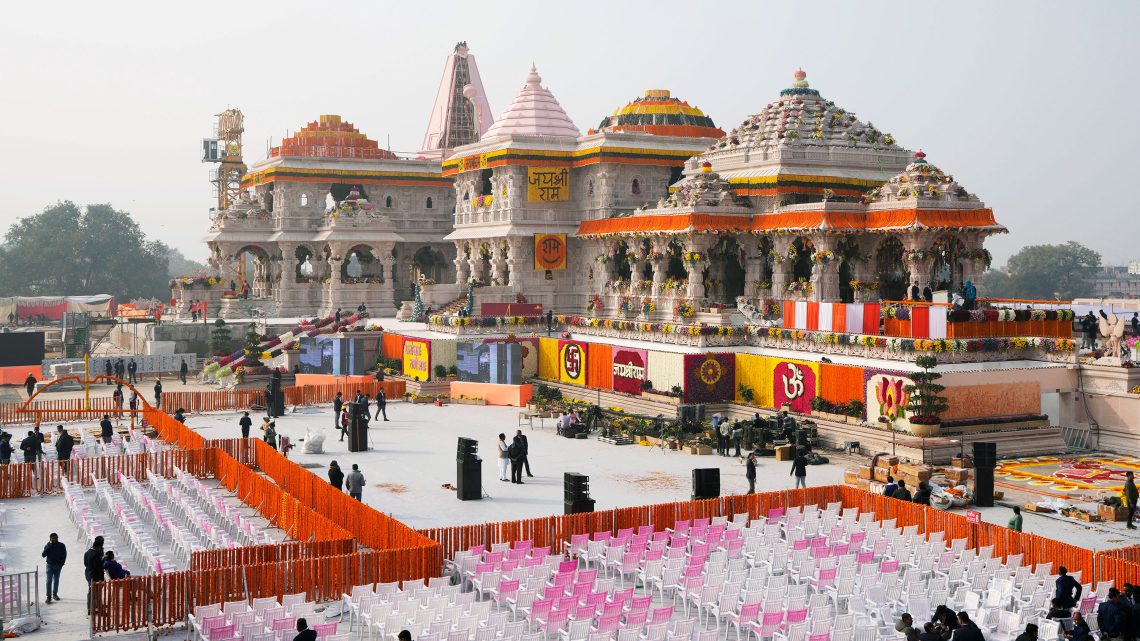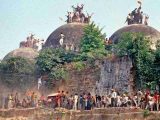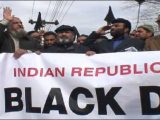
Communal Tension Surrounds Ram Temple Inauguration in Ayodhya, India
January 22, 2024As India prepares for the much-anticipated inauguration of the Ram temple at the site of the demolished Babri Masjid in Ayodhya, tension escalates across the nation, particularly in Uttar Pradesh. Prime Minister Narendra Modi, amidst state-sponsored fanfare, is set to officiate the event, leveraging it as a political maneuver.
The construction of the Ram temple has long been embedded in the election strategy of the Bharatiya Janata Party (BJP). This strategic move has triggered anxiety among the Muslim residents of Ayodhya, a once multicultural hub, who are now sending their children and women to neighboring towns, apprehensive of potential attacks by Hindutva mobs.
The infamous incident of December 6, 1992, when a Hindu mob demolished the 16th-century Babri Masjid on the pretext that Muslims had built it over the ruins of an ancient temple, looms large in the collective memory. While Hindutva supporters celebrate this day as a victory, for Muslims, it remains a haunting memory of terror. Since the BJP came to power in 2014, erasing traces of Muslim and Islamic civilization from India has become a central objective of the Modi regime.
To ensure security for the Ram temple inauguration, central and state forces are heavily deployed, with artificial intelligence, drones, and CCTV cameras adding an extra layer of surveillance. However, a local Muslim organization has submitted a petition to authorities, urging strict security measures in localities with significant Muslim populations and other parts of Ayodhya that witnessed the 1992 demolition and subsequent communal violence.
In Ayodhya town, where Hindus and Muslims have historically coexisted, concerns are growing among the Muslim community. Despite the peaceful cohabitation, past events fueled by outsider mobs have resulted in the loss of life, property, and religious places for the Muslims. The Muslim population in Ayodhya district constitutes 14.8% of nearly 2.5 million inhabitants, with approximately 5,000 Muslims residing within a four-kilometer radius around the temple.
Some Muslims have taken preemptive measures by relocating their children and women to relatives’ homes in nearby districts like Lucknow and Barabanki, expressing distrust in the administration due to the fear of a recurrence of the anti-Muslim riots from 1990 and 1992. Anwari Begum, now 65, vividly recalls the destruction of the mosque, narrating how they had to flee for their lives, leaving her husband, Mohammad Amin, one of at least 17 Muslims who lost their lives in the violent events of that fateful day.
Interestingly, amid the high-profile inauguration guest list, featuring celebrities like Amitabh Bachchan, Ranbir Kapoor, Rajnikanth, Kangana Ranaut, Madhuri Dixit, Akshay Kumar, Anushka Sharma, and cricketer Virat Kohli, some of the most senior religious leaders of Hindu sects are choosing to boycott the event. This divergence in response highlights the complex and sensitive nature of the Ram temple inauguration, with echoes of historical tensions reverberating through the present.

